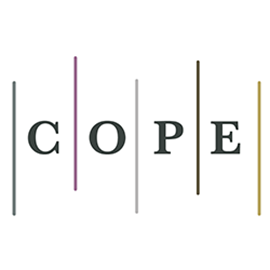You are in: Europe
Change location
You are here
Read this page in English | Read this page in Simplified Chinese
Ethics & Responsibility
On this page, you will find:
- Sage’s commitment to ethical peer review
- Peer Review Ethics – a Sage video tutorial
- Your responsibilities as an author
- Your responsibilities as a reviewer
- Common ethical issues to be aware of when reviewing
Sage’s commitment to ethical peer review
We are committed to upholding the integrity of the work we publish. We encourage our authors, editors, and reviewers to refer to the Committee on Publication Ethics (COPE) website. COPE has published a set of Guidelines for Peer Reviewers that we recommend reading prior to beginning a review. Before submitting an article, authors should familiarise themselves with COPE's guidance on authorship.
Sage takes issues of research misconduct very seriously. Types of misconduct include, but are not limited to, plagiarism, duplication, fabrication or falsification of data (incl. image manipulation), authorship fraud and manipulation of the peer review process.
Where an article, for example, is found to have plagiarised other work or included third-party copyright material without permission or with insufficient acknowledgement, or where the authorship of the article is contested, we reserve the right to take action including, but not limited to: publishing an erratum or corrigendum (correction); retracting the article; taking up the matter with the head of department or dean of the author's institution and/or relevant academic bodies or societies; or taking appropriate legal action. Likewise, in the event that there is evidence of fraudulent activity a submitted or published paper, Sage reserves the right to inform the relevant institutions or affiliations.
Peer Review Ethics for reviewers – a Sage video tutorial
Check out our Peer Review Ethics video tutorial to learn more about the essential ethical considerations for upholding the integrity of peer review.
Your responsibilities as an author
Authors should ensure that:
- their work is original and written by them
- their work has not been previously published and has been submitted only to the journal
- where material is taken from other sources (including their own published writing) the source is clearly cited and that where appropriate permission is obtained
- their work does not infringe on any rights of others, including privacy rights and intellectual property rights
- their data is true and not manipulated
- their data is their own or that they have permission to use data reproduced in their paper
- any real or apparent conflicting or competing interest is clearly stated on submission of their paper (this would include funding assistance)
- they adhere to all research ethics guidelines of their discipline, particularly where human or animal subjects are involved
- they contact the Editor to identify and correct any material errors upon discovery, whether prior or subsequent to publication of their work
- authorship of the paper is accurately represented, including ensuring that all individuals credited as authors participated in the actual authorship of the work and that all who participated are credited and have given consent for publication
Above all, authors should be transparent. For example, if an author is not sure whether her paper is original (for instance, whether it might constitute duplicate publication), she should inform the journal’s editor. If the editor decides it is appropriate to publish, the paper itself should state clearly any potential overlap.
For more information, please visit the Sage Author Gateway.
Your responsibilities as a reviewer
- Please carefully consider whether you have any potential conflicts of interest relating to the paper before undertaking the review. As an example, you should not be reviewing the paper of anyone you have worked with, taught, and/or published work within the past. It is important to highlight to the journal editor any conflict of interest that you feel might occur if you review the paper. Please do so as discreetly and as quickly as possible.
- We ask that you keep all information about any potential ethical concerns related to a paper you are reviewing confidential. As the editor often has more information about a paper and any related concerns, they should always be consulted when you have cause for concern. For this reason, please do not discuss your concerns with anyone other than the journal editor.
- The peer review process is confidential. You must not make personal use of unpublished information or communicate the content of manuscripts to others without the prior agreement of the journal.
- Please be careful not to make judgements about the paper based on personal, financial, intellectual biases or any other considerations than the quality of the research and written presentation of the paper.
- If you are reviewing for a double-anonymized peer review journal, and come to discover the identity of the author through any means (such as reading a preprint or seeing a paper presented at a conference), please inform the journal editor immediately.
- Sometimes you may want to involve junior researchers in the review of an article, or a senior colleague may ask you to contribute. Please ensure that you obtain permission from the journal editor prior to completing the review. The supervisor must agree to provide guidance during the review process and approve the final review. Note the names of those who contributed to the review in the ‘Confidential Comments to the Editor’ box when submitting your review. Find out how you can receive recognition for co-reviews via Publons.
- As per COPE guidelines, reviewers should not suggest that authors include citations of the reviewer’s work merely to increase their citation count or to enhance the visibility of their work; suggestions must be based on valid academic or technological reasons.
- The presence of non-positive outcomes should not influence your assessment of the quality of the study.
- You must keep your affiliation up to date on your reviewer account, so that editors can easily identify if you have a conflict of interest with the authors of a manuscript before inviting you to review the paper.
Common ethical issues to be aware of when reviewing
Sage recommends that you contact the journal editor to discuss the situation without delay if you suspect any of the following problems with any article you are reviewing:
- You suspect that the paper has been either published or submitted to another journal.
The author should disclose any prior distribution and/or publication of any portion of the material to the Editor for the Editor’s consideration and ensure that appropriate attribution to the prior distribution and/or publication of the material is included.
- You suspect that the paper plagiarises the work of others.
Sage takes issues of copyright infringement, plagiarism or other breaches of best practice in publication very seriously. We seek to protect the rights of our authors and we always investigate claims of plagiarism or misuse of published articles. Equally, we seek to protect the reputation of our journals against malpractice.
- You suspect that there might be problems with the ethics of the research conducted.
It is the responsibility of the authors to disclose any potential Conflicts of Interest as well as any funding bodies that have contributed to facilitating the research. It is also the responsibility of the authors to ensure that they have the necessary permissions for any use of data or results sourced from others.
See Sage's Publishing Policies page for more on our Conflict of Interest Policy, Funding Acknowledgements policy, and other publishing policies.
Find out more about Sage’s Ethics and Responsibility policies.
- Contact Us
- Journal Author FAQs
- Sign in/Register
- Sage Chinese Author Gateway
- Top Reasons to Publish with Sage
- Author Timeline
- Impact Factor & Ranking Results
- Conferences and Events
- Sage Choice
- Sage Discipline Hubs
- How to Get Published Resources
- How to Do Research and Get Published Webinar
- Manuscript Submission Guidelines
- Sage Author Services
- Your Paper and Peer Review
- Special Issues
- What is Peer Review?
- Reviewer Rewards
- Ethics and Responsibility
- How to Review Articles
- Promote your article

